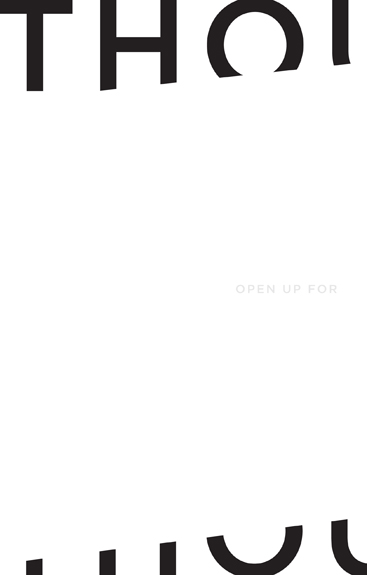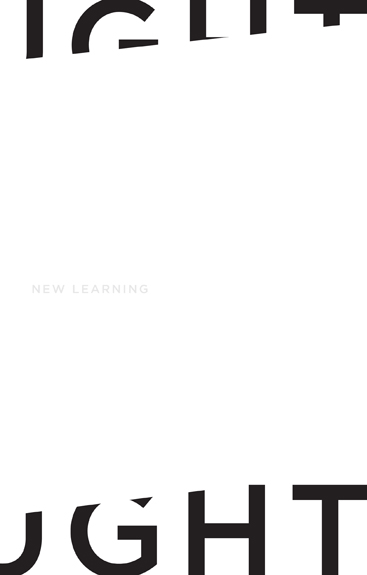1.
BEGINNER’S MIND
A young manager who was very confident in his abilities and who had been promoted to a Vice President role in his company within a year of joining, had an appointment with his Managing Director (MD). He wanted to find out from the MD what it took to rise to the next grade. He was very keen to be promoted again, and soon.
The MD welcomed him into his office and offered the young manager a cup of coffee. Quickly accepting, the young manager started to describe all his achievements and what he knew about the business. He wanted to impress. As the young manager offered his cup to be filled with coffee, the MD kept on pouring into the cup until it overflowed and started spilling onto the carpet.
Startled, the young manager asked: “What are you doing? Why do you keep on pouring when my cup is already full?” The MD replied: “It is because your cup is already full that you are learning nothing from this meeting.”
Not Knowing is emphasized in Zen practice where it is sometimes called “beginner’s mind.” An expert may think they know a subject deeply, yet be blinded to new possibilities by his or her preconceived ideas. In contrast, a beginner may see with fresh, unbiased eyes. The practice of beginner’s mind is to cultivate an ability to meet life without holding on to preconceived ideas, interpretations or judgements.
When we are full of our own thoughts we have no ability to take on new learning and respond to reality as it presents itself in the actual moment. It is not about getting rid of our experience and wisdom, but rather not letting it get in the way of seeing things from a fresh perspective.
The more successful we are, the more tempting it is to believe that we already know what to do. Every project, every problem is different, so approaching a new challenge as if we’ve seen it all before, and applying already known and tested solutions, can lead to making errors. For example, some large consulting firms are sometimes perceived as making any problem fit their existing model. This is cost-effective because the firm will have already invested time developing its proprietary process that can be scaled and applied to many diverse client problems. A colleague remembers once meeting a very senior manager who was renowned in corporate America. He spent a lot of time telling her how interesting his life was and then he said: “You know, I’ve seen it all. I’ve had a long career and there isn’t any issue that I have not been through before.” She was shocked by his arrogance. “It was clearly nonsense that he had seen it all. Even if he had been involved in 100 mergers, the 101st was not simply a cut and paste of one of the previous 99.”
At the One Young World Summit in 2012, Mohammad Yunnus spoke about the way he started the Grameen Bank. Grameen is now a Nobel Peace Prize-winning microfinance organization and community development bank. Yunnus said that the best thing that happened to him was that he didn’t know anything about banking. In fact, if he’d known anything about banking he wouldn’t have embarked on the micro-credit project in the first place.66 “Not knowing something can be a blessing sometimes. You are open, you can do things in your way without worrying about the rules and procedures. [...] Every time I needed a rule or a procedure I had to look at what conventional banks do, and once I learned what they did, I did the opposite.Conventional banks go to the rich, I go to the poor. Conventional banks go to men, I go to the women. Conventional banks are owned by rich people, Grameen Bank is owned by poor people. I could try because I didn’t know anything.” His advice to young entrepre-neurs is: “Don’t be scared if you don’t know something, don’t feel you have to be very smart to do something, stupid people like us do something and it works out.”67
According to Christian Busch, Associate Director at the London School of Economics Innovation Lab and Co-Founder of the Sandbox Network, modern micro-credit, mobile banking and micro-saving are all intriguing innovations that have come out of contexts where there was no real infrastructure in place before. So there was no need to institutionally unlearn; there was no pre-existing conception of “how things are done.” For Christian these examples illustrate how a “don’t know mindset” can trigger innovation without the baggage of history or existing path dependencies.
Christian points out that many interesting recent innovations have come out of resource-constrained environments, where there might either not be a pre-conception of a product/service/business model, or where the pre-conception is so far out of reach (e.g. cost-wise) that it is only peripherally taken into account. He gives the example of mobile banking in Kenya, where the process of people transferring airtime to their friends and families established an alternative to traditional banking services.
“In a country where banks are either difficult to access or rarely affordable, one does not necessarily limit one’s thinking to how to design a better cash machine. Rather, the challenge is tackled from a different angle: 1) We have mobile phones; 2) We have value that needs to be transferred (first airtime, then money); 3) We establish a platform for money-transactions that makes many of the institutionalized banking practices redundant. Whether ‘not knowing’ or ‘not having access to’, these innovations come out of environments where pre-conditions (such as institutions) are either not available, or not accessible.”
Radisson Blu Hotels (formerly Radisson Edwardian) in the UK during the 1990s made the then radical decision to take their General Managers out of their hotels and make them responsible for different areas across the hotel chain, such as food and beverages or room service. Every two or three years they would get the opportunity to change their expert domains and become a beginner again. This way they could apply their knowledge to a new area in the business while bringing fresh perspectives and looking for interconnections between seemingly separate disciplines.
It is said that Morihei Ueshiba, the founder of the martial art Aikido, asked before he died at the age of 85 that he be buried wearing a white belt, the lowest in the belt rankings. Similarly, the most senior Aikido Masters choose to teach the basics of Aikido, a conscious choice to inhabit the “beginner” space. We too can make beginner’s mind a conscious choice and open up the space for new learning and growth.
Don’t Know mindset
“Don’t Know mindset” is a central concept in the Eastern traditions. It simply means not prejudging a situation. In martial arts it means not assuming we will lose or win on the basis of knowing our opponent. Whether they seem stronger or weaker than us, we acknowledge that our judgement may be wrong, so we suspend it and keep an open mind. “Anything can happen” is a much better position to be in than expecting that we will win, then finding ourselves thrown on the mat.
In terms of competitive strategy, just because an organization looks weaker or smaller or seems to have worse products, we can’t prejudge who will win in a competitive market. With this lens, we need to have a strategy that allows for the competitor to be in a winning position as well as a weaker position vis-à-vis our organization. People in business are much more likely to be comfortable relying on analysis that tells them whether a competitor is likely to win or not. However, the “don’t know mindset,” or we could call it “don’t know strategy," admits the possibility of winning or losing at the same time. This approach prepares for both possibilities and manages the benefits and risks of both. It doesn’t close off the possibility that the competitor could beat or even destroy the company’s business. Also it acknowledges that our competitor may not even be on our radar. For example, 10 years ago we may not have predicted that supermarkets would be competitors to banks, providing personal finance products.


